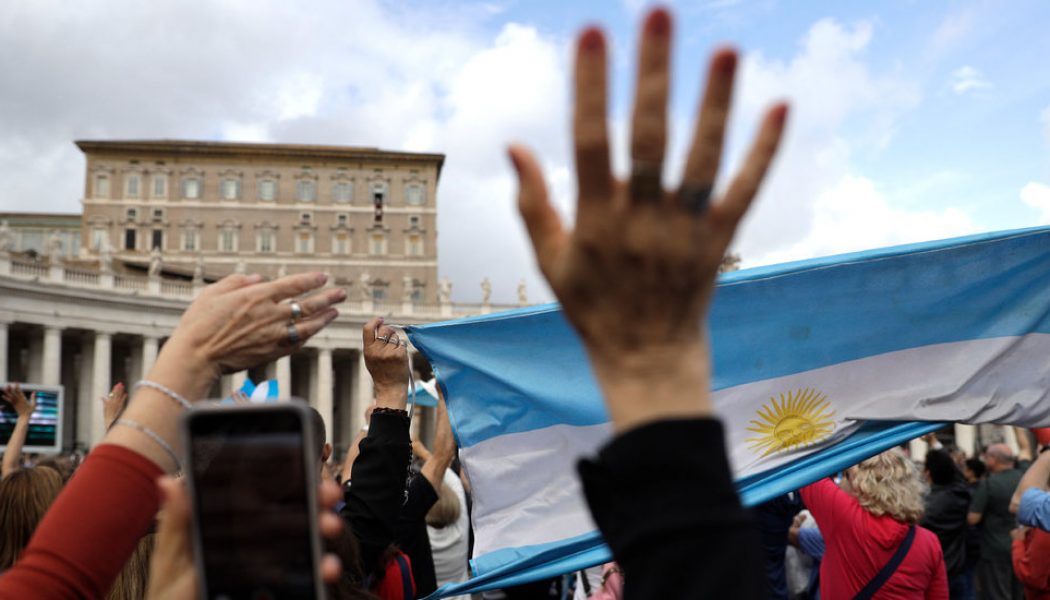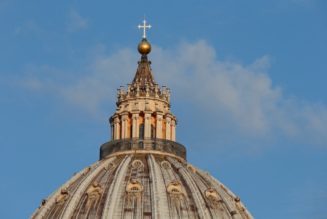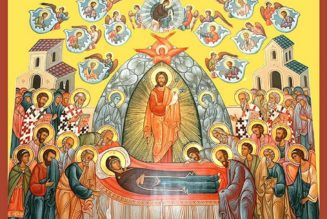
In the presidential election in October, Alberto Fernández, who heads a coalition of Peronists that includes former President Cristina Fernández de Kirchner, handily beat the conservative incumbent, Mauricio Macri. Mr. Macri was a market darling whose “take debt first, reform later” program was felled by financial panic halfway through his four-year term. The pope did not hide his disapproval of Mr. Macri’s efforts.
When Mr. Fernández, who was sworn in as president in December, meets the pope at the Vatican on Friday, they are expected to discuss a recurrent problem: how to save Argentina from another debt default.
The president hopes to kick off his relationship with the pope with the right foot, even despite his pledge to push for the legalization of abortion. In his first six weeks in office, Mr. Fernández has used the term “solidarity” to define his government’s incipient economic program. This concept, one of the pillars of the Roman Catholic Church’s Social Doctrine, is highlighted by the pope in pastoral speeches and Vatican documents, including those that talk about economics.
For Mr. Fernández, so far, solidarity has meant asking wealthy Argentines to pay more taxes, in part to finance an emergency food program to alleviate extreme poverty. The pope, meanwhile, is increasingly placing the global economy at the top of his agenda. In March he will host young economists and activists in Assisi, Italy, at an event called “The Economy of Francesco,” named for the 12th-century St. Francis but also, indirectly, for himself. Francis says that the event will seek to promote “a different kind of economy: one that brings life not death, one that is inclusive and not exclusive.”
The Assisi event coincides with the March 31 deadline Mr. Fernández has imposed on himself to complete the country’s thorny negotiations with its creditors. What he wants from Argentina’s debt holders is simple: more time for repayments, to give the economy space to recover after almost two years of recession. In other words, solidarity, a concept mostly unheard-of in financial market circles.
In their quest, the pope and Mr. Fernández share a link in academia: Joseph Stiglitz, the Columbia economist and Nobel laureate who has for years theorized about how to improve sovereign debt negotiation. Last May, Mr. Stiglitz and the pope discussed ways to “create new economic thinking” for a “social economy.”
A young research assistant for Mr. Stiglitz, an Argentine named Martín Guzmán, also attended that meeting. In 2016, Mr. Stiglitz and Mr. Guzmán were among the authors of a book called “Too Little, Too Late,” which proposed a new framework for sovereign debt restructuring. Mr. Guzmán is now Mr. Fernández’s economy minister and has the difficult task of selling solidarity to the country’s bondholders and the I.M.F.
It is improbable that the pope can perform the miracle of turning creditors’ cash gluttony into altruism overnight, but Argentina’s debt recidivism can nonetheless use the moral patina of Francis’ progressive economic language, especially as Mr. Fernández tries to garner support for the country’s case at the I.M.F. board.
While God may not play dice, the pope excels at playing his cards. Less than a week after his meeting with Mr. Fernández, the Vatican is holding a seminar on “New Forms of Solidarity Toward Fraternal Inclusion, Integration and Innovation” that lists Mr. Stiglitz, Mr. Guzmán and, notably, the I.M.F. managing director, Kristalina Georgieva, among its speakers. Argentine pundits have taken the meeting as evidence that a new “Hand of God,” only this time lawful, might again act in the country’s benefit.
Marcelo J. García (@MJotaGarcia) is a journalist and political analyst.
The Times is committed to publishing a diversity of letters to the editor. We’d like to hear what you think about this or any of our articles. Here are some tips. And here’s our email: letters@nytimes.com.
Follow The New York Times Opinion section on Facebook, Twitter (@NYTopinion) and Instagram.









